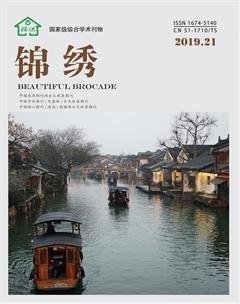Career Cycle Analysis
郏郁文

Teacher is a sacred profession and teachers play a crucial role in passing down the knowledge concentrated from ancients wisdom.During teaching career,their levels of knowledge,attitude,skills keep changing.In consequence,they experience different stages during their entire career lives and this stages are called the career cycle(Woods & Lynn,2014).
“Module Sequences of the Teacher Career Cycle” was developed by Huberman(1995).It contained five stages which are launching a career(1-3 years of teaching),stabilisation(4-6 years of teaching),new challenges,new concerns(7-18 years of teaching),reaching a professional plateau(19-30 years of teaching),final phase of disengagement(31-40 years of teaching).
Steffy(2000)has established a model of teaching career cycle with six phases:novice,apprentice,professional,expert,distinguished,and emeritus.He showed us six stages in a teacher career life from which a personal and professional development process can be been clearly.His classification of career cycle was much more specific and detailed.However,he neglected the period when people have not been a real teacher.
Sammons et al.(2007)also classified six professional life phases which were commitment,identity and efficacy in classroom,managing changes in role and identity,work-life tensions,challenges to sustaining motivation and sustaining/declining motivation,ability to cope with change,looking to retire.
In fact,there were two parts of the career as a teacher which are pre-service and in-service Generally(Eros,2011).In terms of pre-service,it means the preparation stage to be a teacher,such as attending a university,receiving training education and some other practices to make oneself to be a qualified teacher.For in-service,it refers to the period from the time when an individual become a formal teacher to his or her exit.
Even though the stages or phrases of the above career cycle are different,they share the similar pattern in essence.Considering all the mentioned career cycles,I think the theory from Fessler and Christensen(1992)is the most integrative and elaborate one.He identified an eight-stage teacher career cycle model,including(1)pre-service:it usually refers to the time in university or college when the person is prepared for being a teacher.(2)induction:this stage is related to the first few years as a teacher.(3)competency building:in this period the teachers is motivated and inspired to improve his or her teaching skills,to look for more effective teaching contents as well as strategies.(4)enthusiastic and growing:the teacher is achieving higher level and advanced teaching capacity.(5)career frustration:the teacher may encounter with failure and starts to feel frustrated.(6)career stability:the teachers becomes accustomed to doing what is expected by others.(7)career wind-down:the period when the teacher is preparing to leave the position.(8)career exit:the teacher leaves the profession formally.
Moreover,Fessler and Christensens(1992)career cycle also includes two influential factors which are personal environment and organisational environment.In terms of personal environment,it consists of family,positive critical incident,crisis,cumulative life experiences,avocational outlets and individual dispositions.As for organisational environment,it is composed of regulations,management style,public trust,societal expectations,professional organization and union.The career cycle is dynamic and can be affected by these twelve elements in the two environmental influences more or less.Positive influence can smooth a teachers career cycle while negative influence can hinder a teachers progression of career.
The following figure 1 can clearly show the model of teacher career cycle and the related environmental influences.
I did not know there is a career cycle for being a teacher and there are so many skills awaiting me to master before.However,from the above,I know career cycle has several stages and for each of the stage we may encounter with different obstacles but we also gain new knowledge and skills as well.I start to realise that teacher is a tough but worthy career and teachers need to pour all their energy into it to improve personal and professional skills in the field of English education.
Reference
[1]Eros,J.(2011).The career cycle and the second stage of teaching:Implications for policy and professional development.Arts Education Policy Review,112(2),65-70.
[2]Fessler,R.,& Christensen,J.(1992).The teacher career cycle:Understanding and guiding the professional development of teachers.Allyn & Bacon.
[3]Huberman,M.(1993).The lives of teachers.London,England:Cassell.
[4]Sammons,P.,Day,C.,Kington,A.,Gu,Q.,Stobart,G.,& Smees,R.(2007).Exploring variations in teachers work,lives and their effects on pupils:key findings and implications from a longitudinal mixed‐method study.British educational research journal,33(5),681-701.
[5]Steffy,B.E.(Ed.).(2000).Life cycle of the career teacher.Corwin Press.
[6]Woods,A.M.,& Lynn,S.K.(2014).One Physical Educator's Career Cycle:Strong Start,Great Run,Approaching Finish.Research quarterly for exercise and sport,85(1),68-80.

